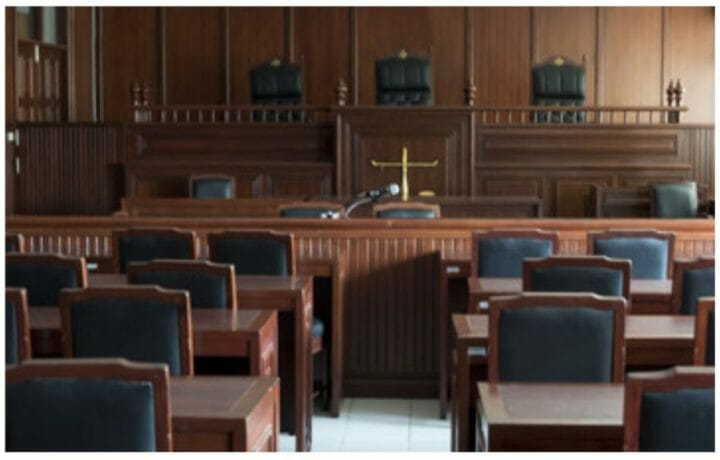Less than two months into the new calendar year, and the Department of Justice is hard at work cracking down on false claims and continuing to save Uncle Same some of his hard-earned money. After noticing a defense contractor settle a false claims act with the DOJ just last week, a quick search in the database reveals 10 examples of companies pleading guilty to false claims in dealings with the U.S. Government this fiscal year alone.
False Claims Act Records
The DoJ released a statement in February of 2022 saying, “The Justice Department obtained more than $5.6 billion in settlements and judgments from civil cases involving fraud and false claims against the government in the fiscal year ending Sept. 30, 2021.
As of that date, it was the second-largest annual total in False Claims Act history and the largest since 2014. Since 1986, when Congress substantially strengthened the Civil False Claims Act, settlements and judgments have totaled more than $70 billion.
Another release from the DOJ, just a year later, stated, “settlements and judgments under the False Claims Act exceeded $2.2 billion in the fiscal year ending Sept. 30, 2022.”
And it continues on.
Healthcare Fraud a Big Issue
In 2021, healthcare fraud was the leading source of the False Claims Act’s judgments and settlements. Opioid manufacturers also made significant impacts with resolutions affecting several companies such as Indivior and Purdue Pharma, for allegations that the company was pushing medical providers to prescribe the opioids in unsafe and harmful ways.
In 2022, healthcare cases, once again, were credited for the majority of the reclaimed funds in the False Claims Act. Of the $2.2 billion, $1.7 billion were from the healthcare industry.
The 2022 False Claims were attributed to drug and medical device manufacturers. Durable medical equipment, home health and managed care providers, and more. The DoJ also cracked down on fraud in pandemic relief programs and cybersecurity requirements in ‘22, as well.
One such case, from 2022, was Mallinckrodt ARD LLC, also known as Questcor Pharmaceuticals Inc. They paid $260 million to resolve allegations one of its drugs, H.P. Acthar Gel, which treats acute exacerbations of multiple sclerosis and infantile spasms.
The DOJ case alleges that the company intentionally underpaid rebates to Medicaid by improperly labeling Acthar as a new drug, versus the company in reality, just raising the prices of a drug already being used. The company also allegedly used a foundation to pay illegal kickbacks.
History of the False Claims Act
The False Claims Act, originally enacted in 1863, was created in response to defense contractor fraud during the American Civil War when war profiteers were shipping boxes of sawdust instead of the guns purchased by the government.
And FY24 doesn’t seem to be starting any new trends when it comes to the FCA cases that are being adjudicated.
At the end of January, a government contractor agreed to pay $3.9 million for claims of misrepresentation, a doctor in Fairfax pleaded guilty to Obstructing the IRS and pay $5.3 million, and another doctor was convicted of Illegal Opioid Distribution.
“The Defense Criminal Investigative Service is committed to rooting out fraud and corrupt schemes, which undermine the integrity of the Department of Defense procurement process,” said Christopher Dillard, Special Agent in Charge, Defense Criminal Investigative Service (DCIS) Mid-Atlantic Field Office. “DCIS working together with its law enforcement partners will continue to ensure the DoD contracting process remains fair and competitive.”
“Government contractors are expected to be honest in their dealings with the government,” said Floyd Martinez, Special Agent in Charge, General Services Administration (GSA) Office of Inspector General. “GSA OIG special agents and our investigative partners are committed to holding accountable those who misrepresent themselves in order to obtain federal contracts.”
The Role of Whistleblowers
In many of these cases, the government relies on its private citizens to blow the whistle on such misdealings.
In 1986, Senator Charles Grassley and Representative Howard Berman led the successful efforts in Congress to amend the False Claims Act to, among other things, encourage whistleblowers to come forward with allegations of fraud, stated a DOJ press release. In 2009 and 2010, further improvements were made to the False Claims Act and its whistleblower provisions.
Written under the FCA, it states, “In addition to allowing the United States to pursue perpetrators of fraud on its own, the FCA allows private citizens to file suits on behalf of the government (called “qui tam” suits) against those who have defrauded the government. Private citizens who successfully bring qui tam actions may receive a portion of the government’s recovery. Many Fraud Section investigations and lawsuits arise from such qui tam actions.”
The government and whistleblowers were party to 351 settlements and judgments in fiscal year ‘22; the second-highest number of settlements and judgments in a single year.
“[T]he False Claims Act has provided ordinary Americans with essential tools to combat fraud, to help recover damages, and to bring accountability to those who would take advantage of the United States government – and of American taxpayers,” stated Former Attorney General Eric Holder, U.S. Department of Justice.
The FCA also protects those ‘ordinary citizens’ from their employers, as does The Whistleblower Protection Program.
“We are grateful for the hard work and courage of those private citizens who bring evidence of fraud to the Department’s attention, often putting at risk their careers and reputations,” said Principal Deputy Assistant Attorney General Boynton. “Our ability to protect citizens and taxpayer funds continues to benefit greatly from their actions.”



